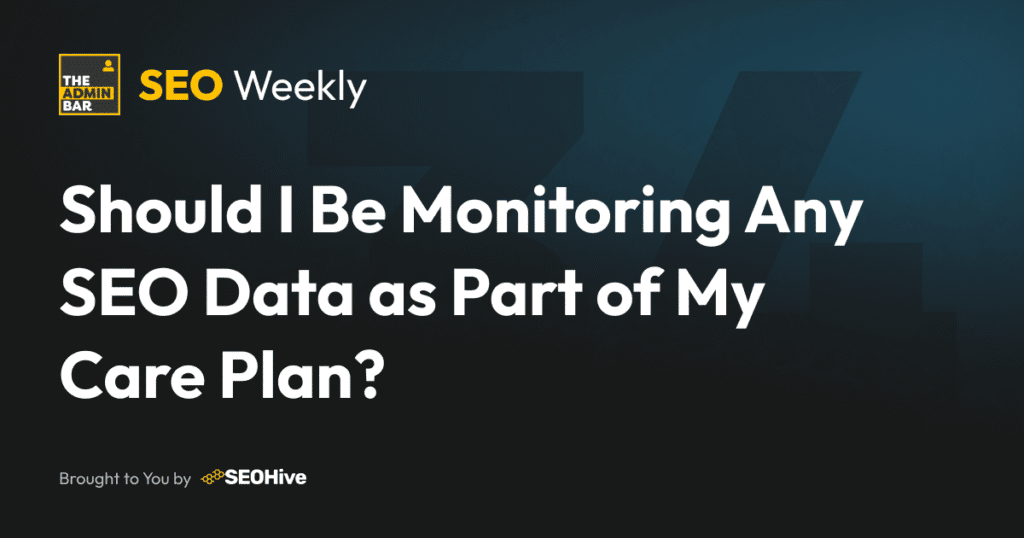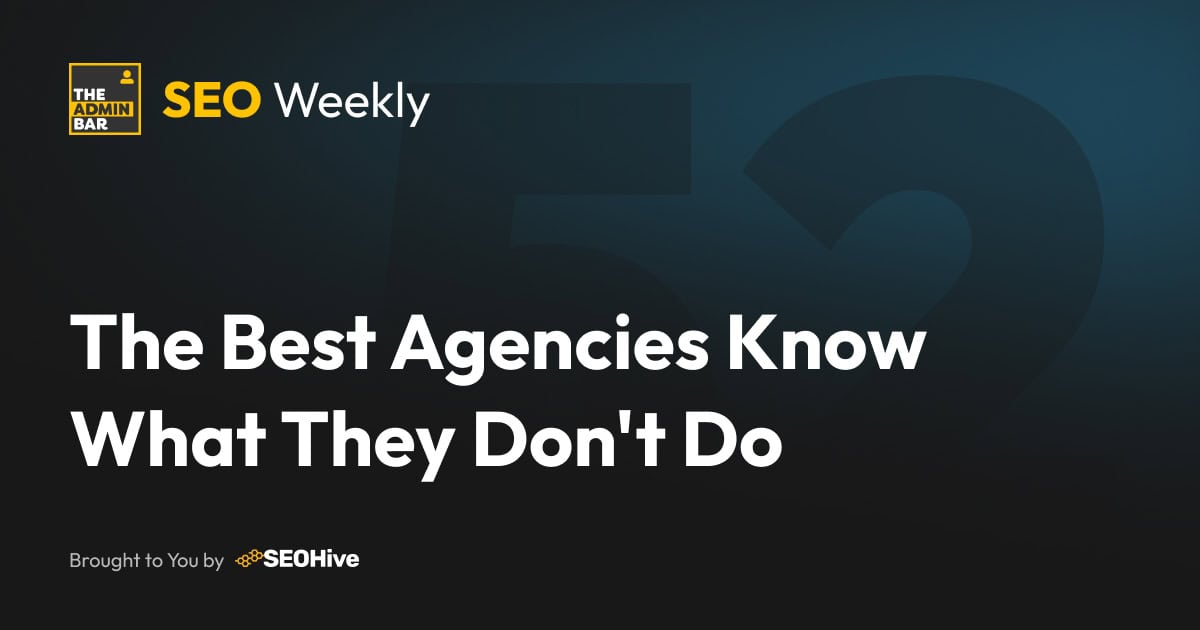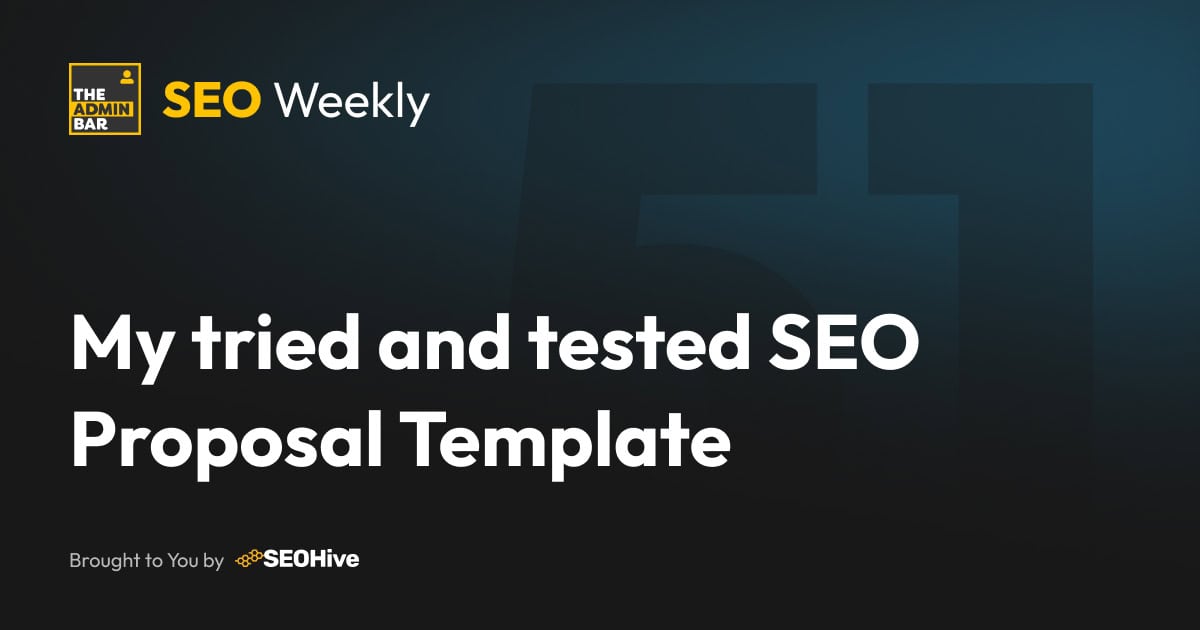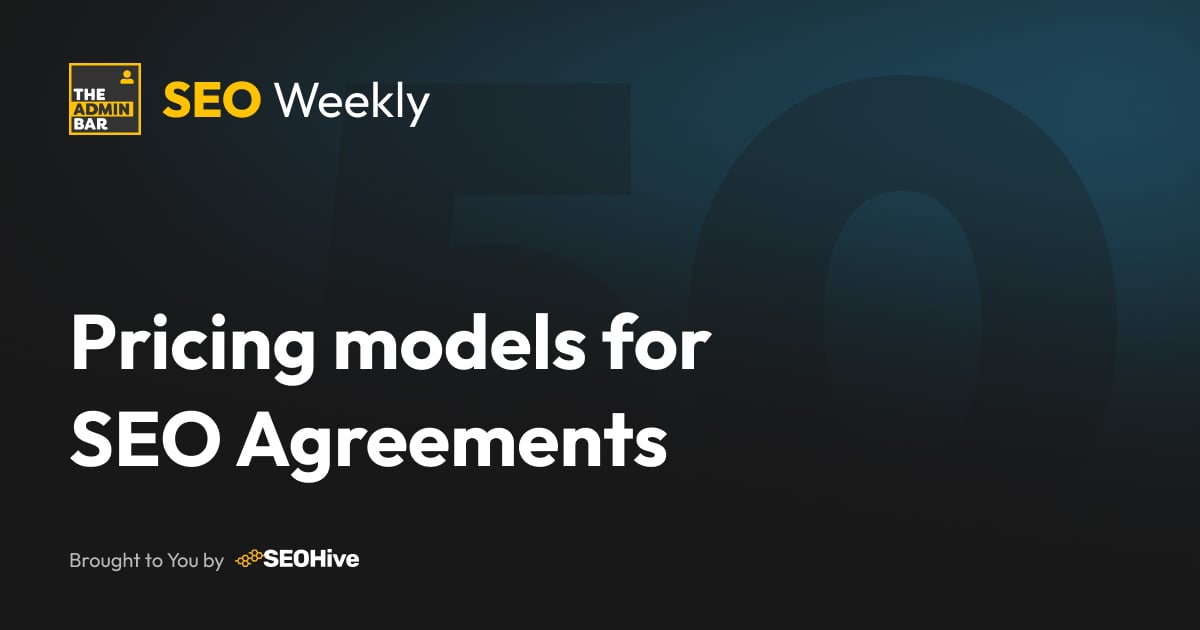This is a great question! And there are two perspectives to this, both of which we need to look at.
Firstly, a client who may not know too much about how the internet works, might think that the X dollars they send you every month means you have your eye on this stuff…Not just the technical on-site stuff (I’m sorry to say it, but they probably don’t care too much about plugin and core updates), but also the performance stuff. If they suddenly drop out of the search engines, they’ll be ringing you and asking “Why didn’t you know about this?!”
Secondly, there’s the agency perspective. So if we use the client’s point of view as our benchmark, what does it actually mean to incorporate SEO data into your care plans?
SEO Tools Aren’t “Cheap”
Let’s be honest about something: quality SEO tools cost money. SEMrush, Ahrefs, SEO Stack, Screaming Frog, rank trackers – they all add up. If you’re a smaller agency or have tight margins, these costs can feel prohibitive.
That said, even for those on a tight budget, tools like Mangools do a sterling job, and are a fraction of the price (from $49 / month), and give you most of the basics.
But here’s the thing… If you can afford to include basic SEO monitoring in your profit margin, it’s one of the most valuable services you can offer… Let me explain why. 👇
Why SEO Monitoring Matters in Care Plans
Including SEO monitoring positions you as the proactive, trusted advisor rather than just the “website maintenance person.” When you spot issues before your client does, you demonstrate real value and expertise.
More importantly, it gives you natural upsell opportunities. Instead of cold-calling, or waiting for clients to call you about SEO, you’re presenting data-driven insights: “We noticed your organic traffic dropped 30% last month – here’s what we think is happening and how we can fix it.”
Essential Metrics to Track
Good solid SEO is a consistent gradual incline in statistics. What we don’t like to see in SEO is big spikes or drops. So, with that in mind, you don’t need to monitor everything, you just need to focus on the metrics that reveal significant changes:
1️⃣ Overall Website Traffic
Track month-over-month and year-over-year changes. Look for:
- Sudden drops in website visitors
- Unexpected spikes
- Gradual declines
2️⃣ Traffic Sources
Monitor what percentage of traffic comes from organic search. A declining organic percentage might indicate that there are some SEO issues affecting rankings, competition is increasing, or your content needs a refresh.
3️⃣ Google Search Console Impressions
Often overlooked, GSC impressions show how often the site appears in search results, regardless of clicks. Declining impressions can indicate:
- Algorithm changes affecting visibility
- Technical issues preventing proper indexing
- Competitive displacement
4️⃣ Search Console Errors and Issues
Regular monitoring should catch crawl errors and indexing problems, mobile usability issues, Core Web Vitals issues or any other manual penalties or security items that should be cleaned up.
5️⃣ SEO Health Monitoring
If your budget allows for tools like SEMrush Site Audit or Screaming Frog automation, you need to look out for:
- Technical SEO score changes
- New broken links
- Page speed degradation
- Content issues
6️⃣ Priority Keyword Tracking (If Possible)
Even if you just follow the rankings for their main product / service titles, you should watch for:
- Ranking position changes
- SERP feature losses/gains
- Competitor movements
What You’re Really Looking For 👀
You’re not trying to provide a full-service SEO agency service here.
What you’re looking for are significant spikes or drops that indicate something needs attention. Things like:
- 30%+ traffic drops month over a month
- 20+ ranking losses for important terms
- Sudden increase in technical errors
- Core Web Vitals failures
- Security or penalty notices
Financial Structure
As mentioned above, some of this stuff isn’t cheap, and you need to balance the cost, vs additional workload. Some suggestions to make this work from a financial perspective could be:
Option 1: Build It Into Premium Care Plans
Create tiered care plans where SEO monitoring is included in your higher-tier offerings. This justifies the additional cost while providing clear value differentiation.
Option 2: Use Free Tools Strategically
Google Analytics, Search Console and PageSpeed Insights provide substantial monitoring capabilities at no cost. Combine these with occasional paid tool usage for deeper analysis.
Option 3: Monthly Snapshot Approach
Instead of continuous monitoring, conduct monthly “health checks” using trial versions or one-off tool access. This reduces costs while maintaining oversight.
Being Proactive Positions You for The Upsell
So, with all that ironed out… Why is this all worth it?
When you identify issues early, you become the “hero” who prevented bigger problems.
For example, it’s far more effective to be the agency that proactively flags early signs of a traffic decline and presents a clear solution (“We’ve noticed early signs of a traffic decline and have identified an issue – here’s our recommended fix”), than to be caught off guard, scrambling to explain what went wrong when the client comes asking.
Moreover, this also gives you the chance to provide the solution at an additional cost. This isn’t about you doing more work for free (other than maybe a few reports), but actually providing the solution and the quote for the fix.
When you take your car to the mechanic and he finds a problem, it always follows with a “so the cost for completing this work will be X” – and it’s the same mentality here. You’re not hoodwinking anyone into sales, but you are being proactive and monitoring for issues, because fixing issues in their infancy will be better for the client in the long run.
Rounding Up…
So, back to the question in hand: should you monitor SEO data in care plans?
If your margins allow it, absolutely. For all of the reasons above, it positions you as a strategic partner, creates natural upsell opportunities and provides genuine value that justifies premium pricing.
Even basic monitoring using free tools can reveal significant issues and opportunities that your clients would otherwise miss entirely.
Do you include SEO monitoring in your care plans? Which tools do you use in your stack to manage this?
Join the Conversation!
There's a dedicated thread on this post inside of The Admin Bar community. Join in on the conversation, ask questions, and learn more!
Group Thread





